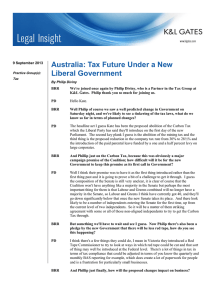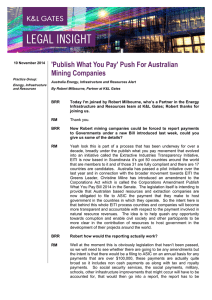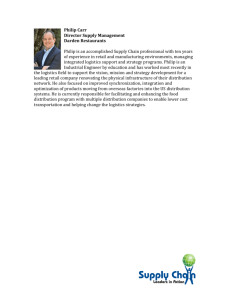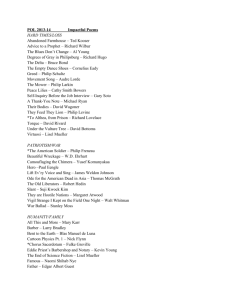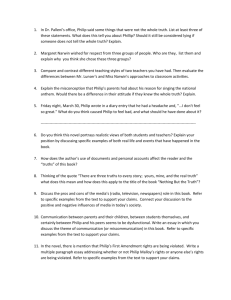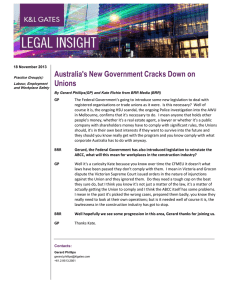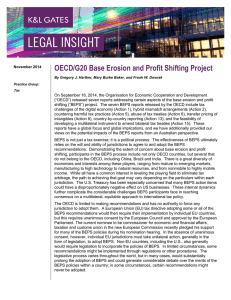The Australian Government Commits to OECD's Finance Ministers' Meeting
advertisement
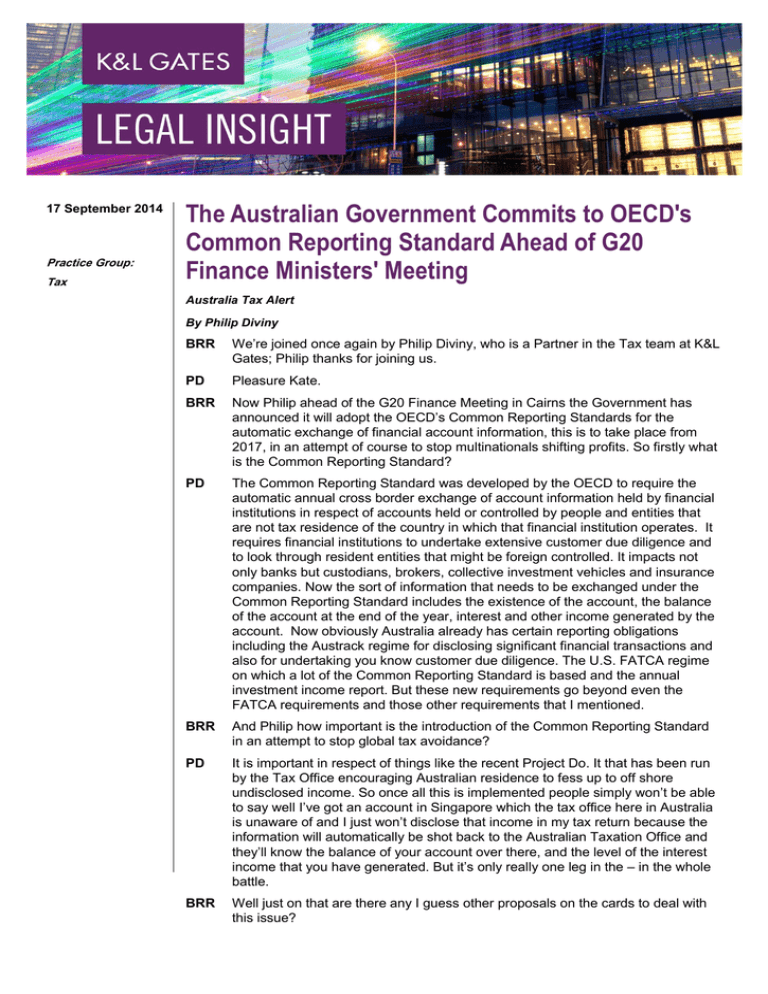
17 September 2014 Practice Group: Tax The Australian Government Commits to OECD's Common Reporting Standard Ahead of G20 Finance Ministers' Meeting Australia Tax Alert By Philip Diviny BRR We’re joined once again by Philip Diviny, who is a Partner in the Tax team at K&L Gates; Philip thanks for joining us. PD Pleasure Kate. BRR Now Philip ahead of the G20 Finance Meeting in Cairns the Government has announced it will adopt the OECD’s Common Reporting Standards for the automatic exchange of financial account information, this is to take place from 2017, in an attempt of course to stop multinationals shifting profits. So firstly what is the Common Reporting Standard? PD The Common Reporting Standard was developed by the OECD to require the automatic annual cross border exchange of account information held by financial institutions in respect of accounts held or controlled by people and entities that are not tax residence of the country in which that financial institution operates. It requires financial institutions to undertake extensive customer due diligence and to look through resident entities that might be foreign controlled. It impacts not only banks but custodians, brokers, collective investment vehicles and insurance companies. Now the sort of information that needs to be exchanged under the Common Reporting Standard includes the existence of the account, the balance of the account at the end of the year, interest and other income generated by the account. Now obviously Australia already has certain reporting obligations including the Austrack regime for disclosing significant financial transactions and also for undertaking you know customer due diligence. The U.S. FATCA regime on which a lot of the Common Reporting Standard is based and the annual investment income report. But these new requirements go beyond even the FATCA requirements and those other requirements that I mentioned. BRR And Philip how important is the introduction of the Common Reporting Standard in an attempt to stop global tax avoidance? PD It is important in respect of things like the recent Project Do. It that has been run by the Tax Office encouraging Australian residence to fess up to off shore undisclosed income. So once all this is implemented people simply won’t be able to say well I’ve got an account in Singapore which the tax office here in Australia is unaware of and I just won’t disclose that income in my tax return because the information will automatically be shot back to the Australian Taxation Office and they’ll know the balance of your account over there, and the level of the interest income that you have generated. But it’s only really one leg in the – in the whole battle. BRR Well just on that are there any I guess other proposals on the cards to deal with this issue? The Australian Government Commits to OECD's Common Reporting Standard Ahead of G20 Finance Ministers' Meeting PD The main thing dealing with international profit shifting is the BEPS Project, the Base Erosion and Profit Shifting Project, and that’s also going to be discussed at the Cairns conference. There was a plan that was issued some time ago which contains 15 action points to address BEPS in a coordinated and systematic manner and the sort of issues covered in those 15 action points are current gaps and mismatches between domestic laws that could lead to BEPS opportunities. The ways to restore the full effect of domestic and international tax rules, aligning transfer pricing outcomes with value creation in, particularly intellectual property and also trying to streamline the way in which bilateral tax treaties can be modified. Now from an Australian perspective I think significant work has been undertaken on BEPS including the release of four discussion papers addressing four of those 15 action points that I mentioned. And those discussions papers are out on the digital economy, hybrid mismatch arrangements, so that is where something is treated as say debt in one jurisdiction and equity in another jurisdiction, the prevention of treaty abuse and also country by country reporting and transfer pricing documentation. BRR Well obviously a number of things on the cards, if we look I guess back to the Common Reporting Standards, is there any current road blocks to making this a success? PD Well I guess the first thing is to get sufficient interest from other countries in adopting the Common Reporting Standard, and I think the Government came out last weekend to say that they would implement it in order to show leadership on this issue and to encourage buy in from other countries at the Cairns conference. Obviously there are massive implementation issues because the financial institutions in each country, including Australia, will have their own existing domestic law requirements that they are in compliance with, and so they’ve got an issue in terms of trying to mould their systems to what the new Common Reporting Standard requirements will be. BRR Well it certainly is an interesting issue; it will be good to see what does come out of the G20 Finance Meeting in Cairns. Philip thanks so much for sharing your insights on this topic. PD No worries Kate. BRR That was Philip Diviny, a Partner in the Tax team at K&L Gates. Now listeners if you have any questions you can send them through either using the panel on your screen or otherwise via email to law@brrmedia.com. Author: Philip Diviny philip.diviny@klgates.com +61.3.9640.4221 2 The Australian Government Commits to OECD's Common Reporting Standard Ahead of G20 Finance Ministers' Meeting Anchorage Austin Beijing Berlin Boston Brisbane Brussels Charleston Charlotte Chicago Dallas Doha Dubai Fort Worth Frankfurt Harrisburg Hong Kong Houston London Los Angeles Melbourne Miami Milan Moscow Newark New York Orange County Palo Alto Paris Perth Pittsburgh Portland Raleigh Research Triangle Park San Francisco São Paulo Seattle Seoul Shanghai Singapore Spokane Sydney Taipei Tokyo Warsaw Washington, D.C. Wilmington K&L Gates comprises more than 2,000 lawyers globally who practice in fully integrated offices located on five continents. The firm represents leading multinational corporations, growth and middle-market companies, capital markets participants and entrepreneurs in every major industry group as well as public sector entities, educational institutions, philanthropic organizations and individuals. For more information about K&L Gates or its locations, practices and registrations, visit www.klgates.com. This publication is for informational purposes and does not contain or convey legal advice. The information herein should not be used or relied upon in regard to any particular facts or circumstances without first consulting a lawyer. © 2014 K&L Gates LLP. All Rights Reserved. 3
